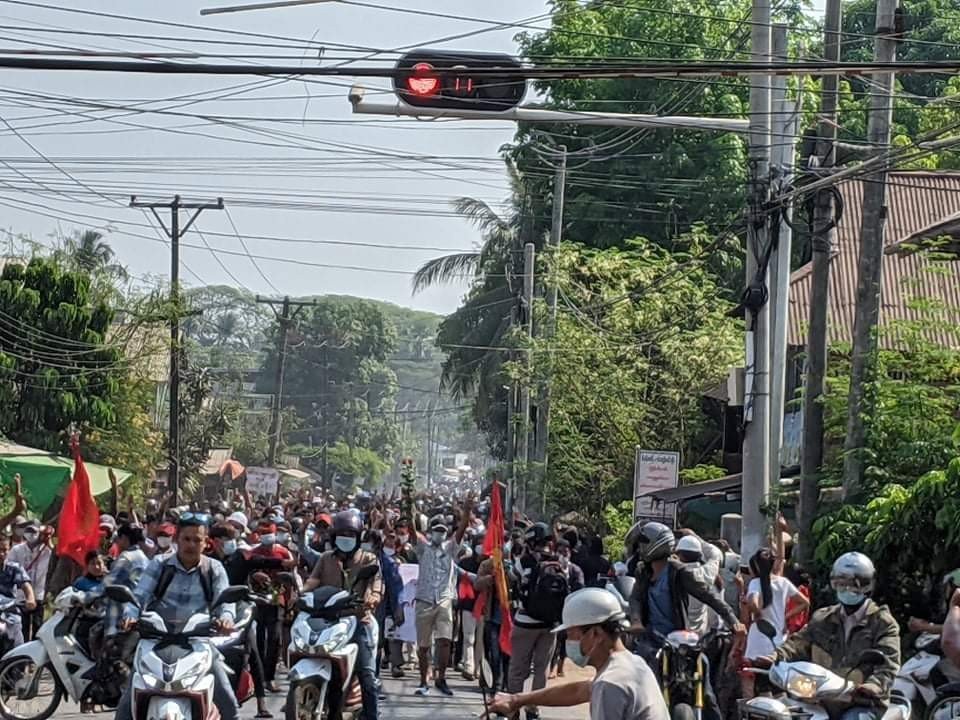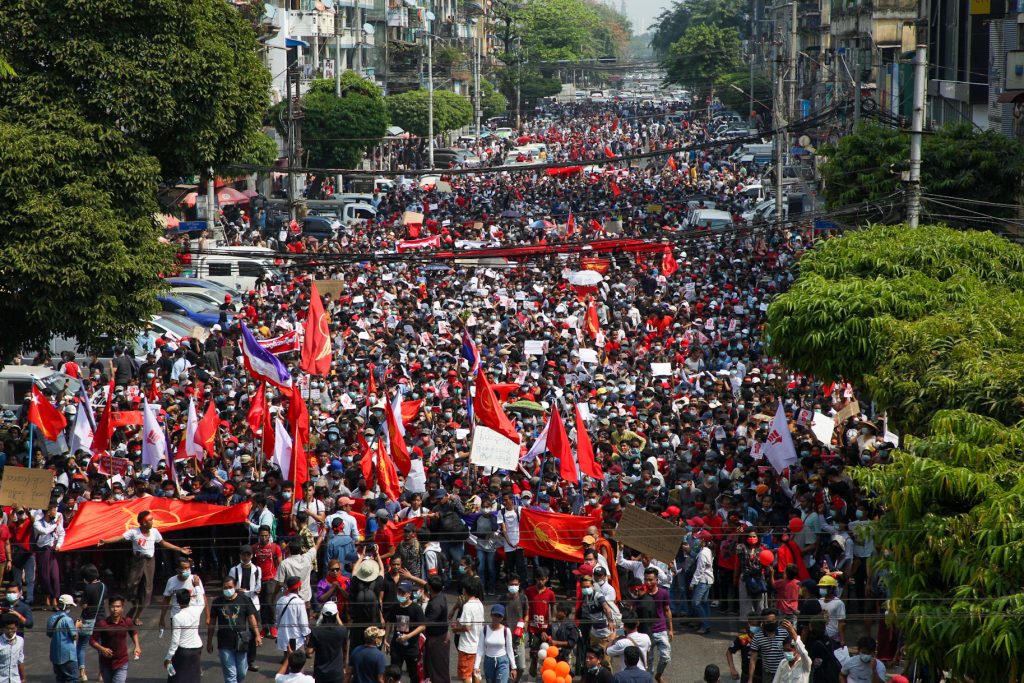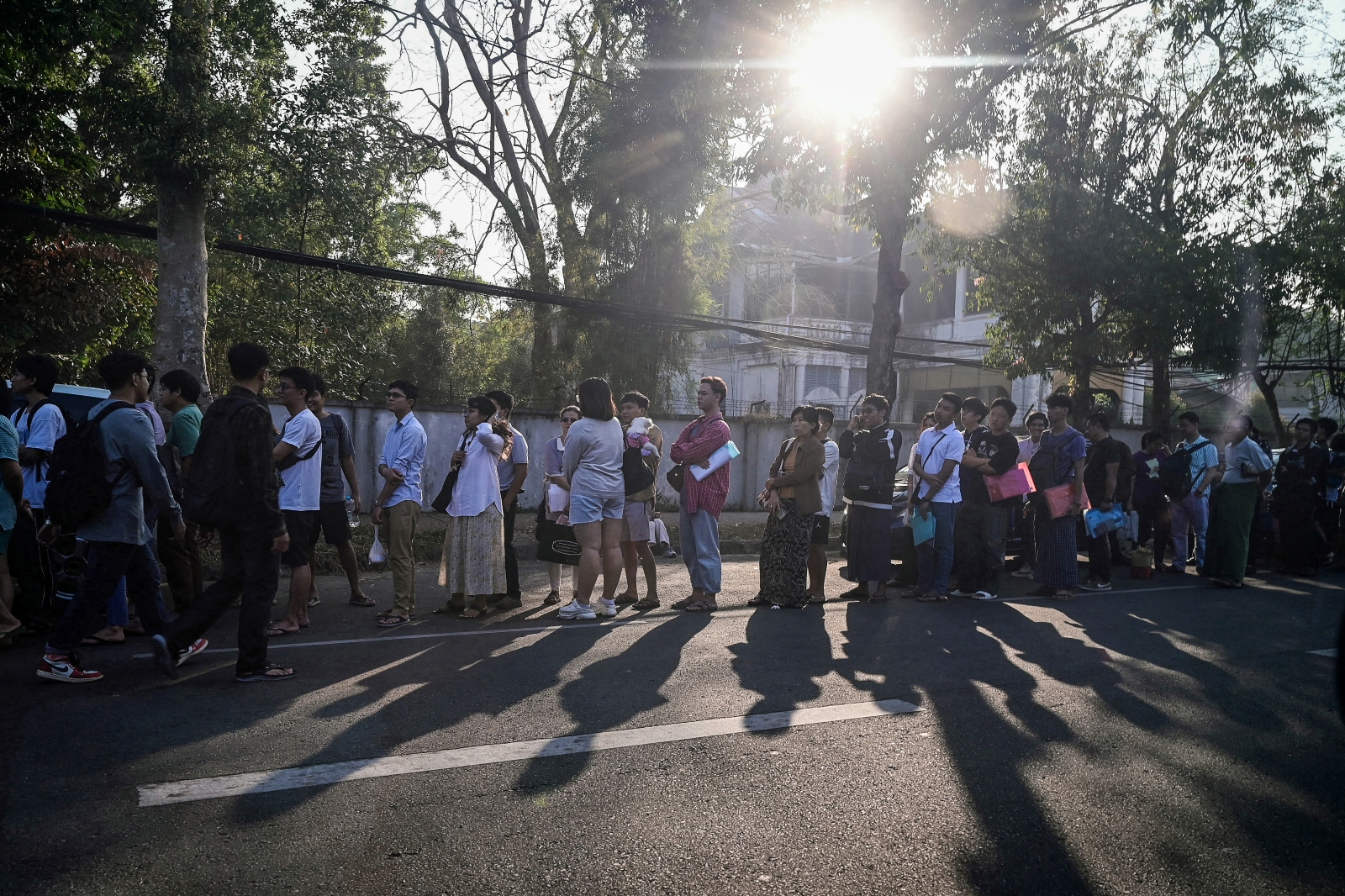Despite an internet blackout, protests spread through urban centres and small towns alike, calling for the release of detained leader Daw Aung San Suu Kyi and a return to representative government. Protests are expected to continue Monday.
By AFP
Tens of thousands of protesters poured onto the streets across Myanmar Sunday in the biggest anti-coup rallies yet, as an internet blackout failed to stifle growing outrage at the military’s ouster of elected leader Aung San Suu Kyi.
Some estimates put the number of protesters in Yangon at 100,000 and there were reports of large demonstrations in other cities condemning the coup that brought Myanmar’s 10-year experiment with democracy to a crashing halt.
Backed by a din of car horns, chanting protesters in Yangon held up banners saying “Justice for Myanmar”, while others waved the signature red flags of Suu Kyi’s National League for Democracy party as they marched to City Hall.
“I completely despise the military coup and I am not afraid of a crackdown,” said Kyi Phyu Kyaw, a 20-year-old university student.
“I will join every day until Amay Suu (Mother Suu) is freed.”
Protesters in Yangon began dispersing in the evening, after announcing that they would return to the streets at 10am local time on Monday, indicating no let-up in their resistance.
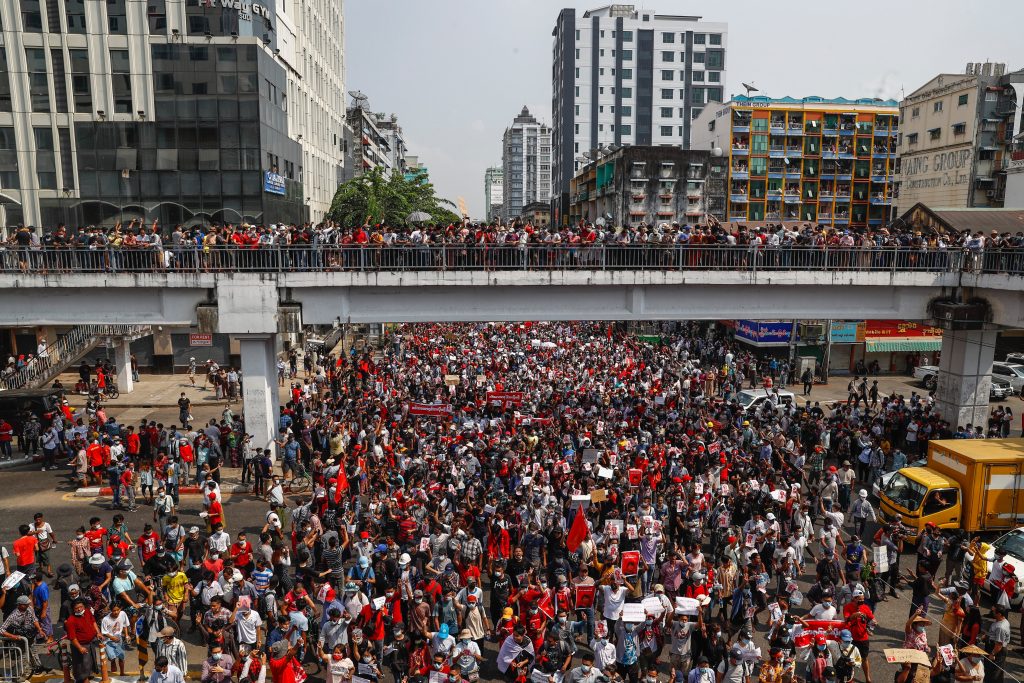
They also called on civil servants and people employed in other industries to not go to work and join the protests.
Many flashed the three-finger salute inspired by the “Hunger Games” films, which became a symbol of resistance during the pro-democracy protests in Thailand last year.
“We will fight until the end,” said Ye Kyaw, an 18-year-old economics student. “The next generation can have democracy if we end this military dictatorship.”
There was a large demonstration also in the capital Nay Pyi Taw, despite the heavy military presence there, while tens of thousands rallied in Mandalay, Myanmar’s second-biggest city.
Both those protests included people on armadas of motorcycles, waving flags and holding banners.
There were also demonstrations in Mawlamyine city and the Magway region.
The rallies were largely peaceful, but local media reported that in the southeastern city of Myawaddy, police fired warning shots in the air to disperse a group of protesters.
Pope Francis on Sunday expressed “solidarity with the people of Myanmar”, urging the army to work towards “democratic coexistence”.
The surge in popular dissent over the weekend overcame a nationwide internet blockade, similar in magnitude to an earlier shutdown that coincided with the arrest of Suu Kyi and other senior leaders on Monday.
Online calls to protest have prompted bold displays of defiance, including the nightly deafening clamour of people banging pots and pans – a practice traditionally associated with driving out evil spirits.
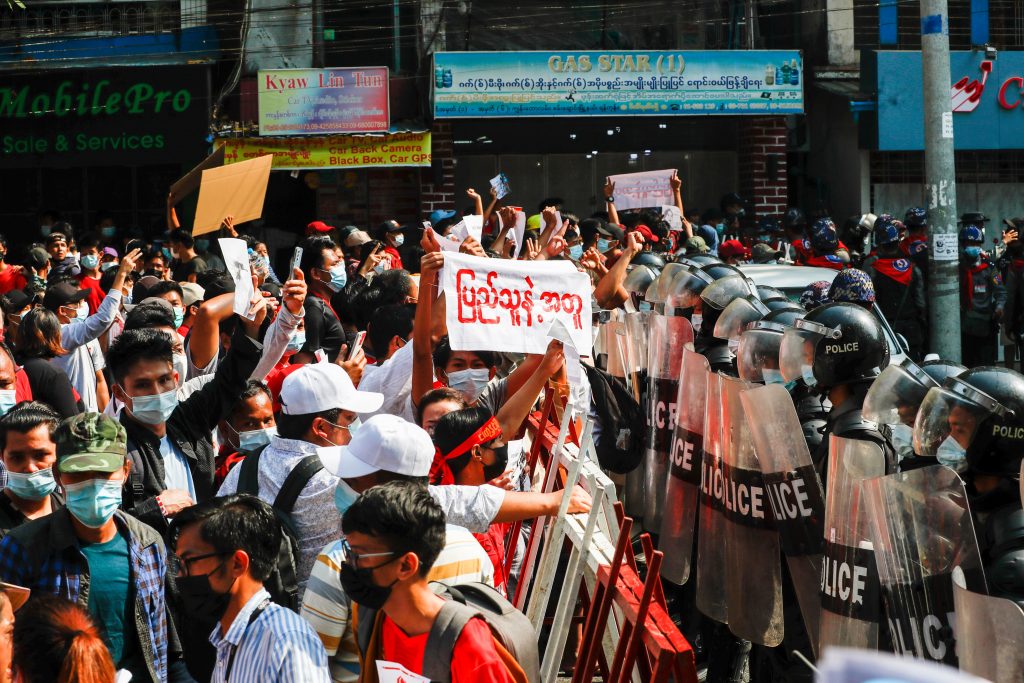
Monitoring service NetBlocks said internet services were partially restored on some mobile networks in Myanmar Sunday afternoon, but social media platforms remained inaccessible and it was unclear how long the connectivity would last.
Civil disobedience
As protests gathered steam after the coup, the junta ordered telecom networks to freeze access to Facebook, an extremely popular service in the country and arguably its main mode of communication.
The platform had hosted a rapidly growing “Civil Disobedience Movement” forum that inspired civil servants, healthcare professionals and teachers to show their dissent by boycotting their jobs.
On Sunday, live Facebook video feeds from multiple cities showed protesters marching through the streets. It was not immediately clear how they bypassed the internet block.
The military had widened its efforts to quell organised dissent on Friday when it demanded new blocks on other social media services including Twitter.
“The generals are now attempting to paralyse the citizen movement of resistance – and keep the outside world in the dark – by cutting virtually all internet access,” said Tom Andrews, UN special rapporteur on human rights in Myanmar.
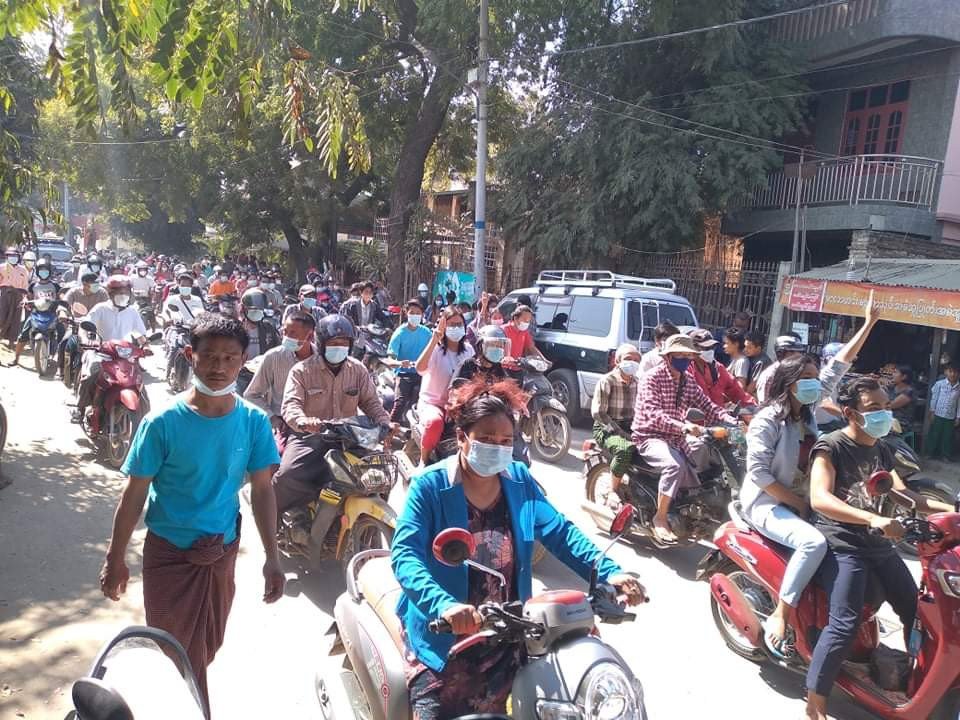
In addition to Suu Kyi and some of her top aides, dozens have been detained so far.
The precise number of arrests is not yet known, but monitoring group Assistance Association for Political Prisoners said Saturday that more than 150 people were still in custody.
International condemnation
An immensely popular figure in Myanmar despite a tarnished reputation in the West, Suu Kyi has not been seen in public since the coup, but a party spokesman said Friday she was “in good health”.
Two days after the coup, criminal charges were filed against her related to the illegal import of a set of walkie-talkies.
The military had hinted at its coup intentions days in advance, insisting that the NLD’s landslide victory in the November elections was the result of voter fraud.
Following the takeover, the junta proclaimed a one-year state of emergency after which it promised to hold fresh elections, without offering any precise timeframe.
The coup has been widely condemned by the international community, with US President Joe Biden leading calls for the generals to relinquish power and release those arrested in the post-coup crackdown.
